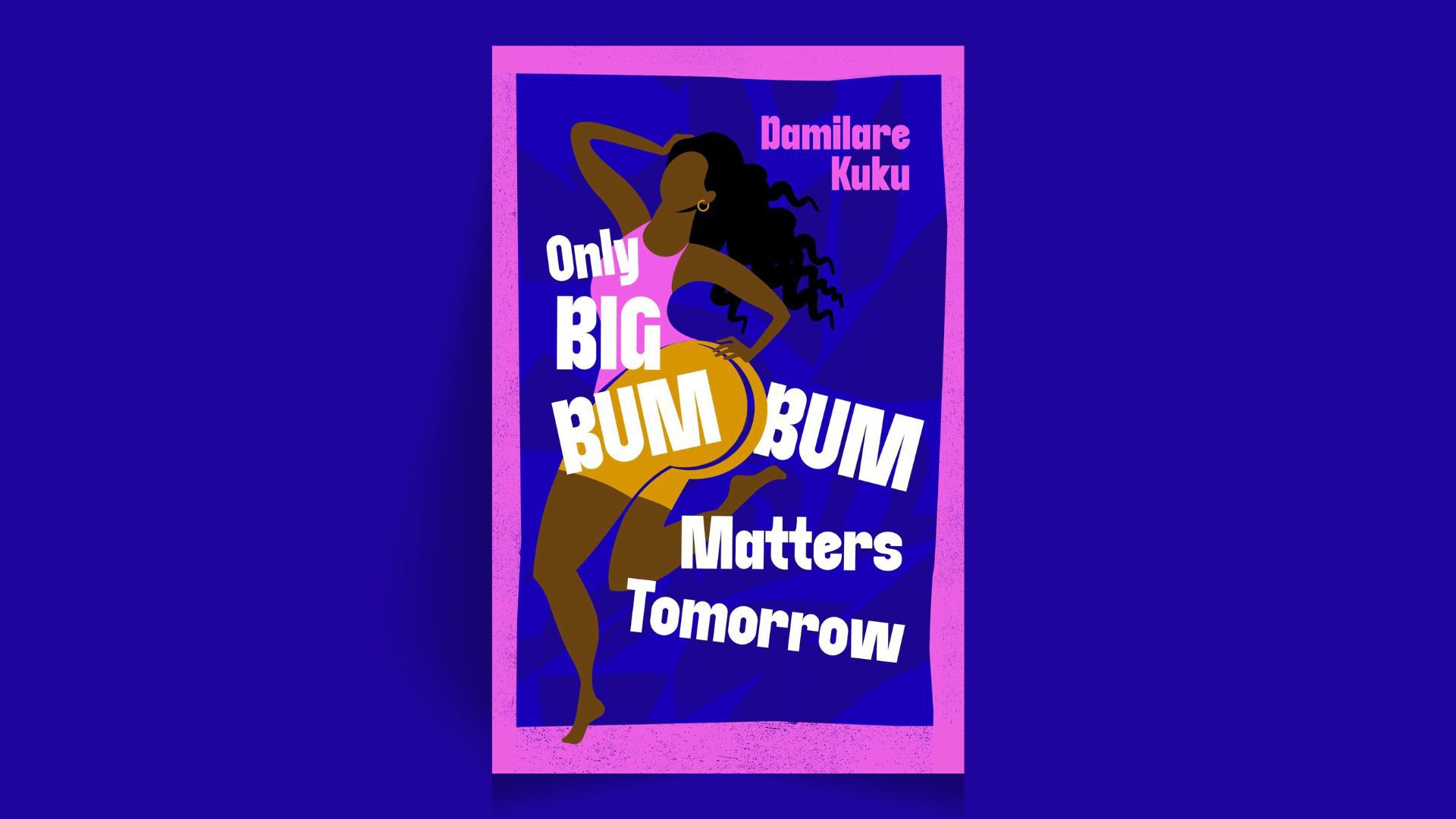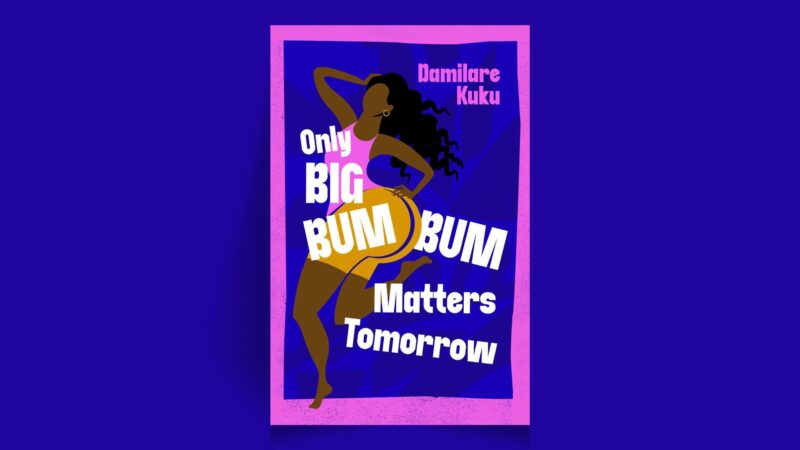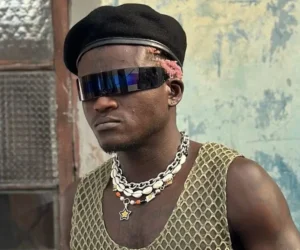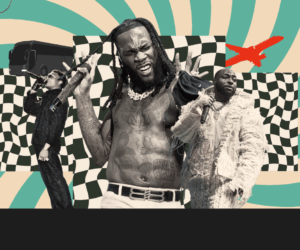
In a country where music videos have become anatomy documentaries and Instagram has turned into a “booty Olympics,” having a flat bum in Nigeria can feel like a personal tragedy. It’s not just about aesthetics; it’s about survival, social mobility, and being allowed inside VIP sections without looking at the bouncer with puppy eyes.
Only Big Bum Bum Matters Tomorrow by Damilare Kuku gets this pressure with wild accuracy and serves it hot with humour, heartbreak, and a level of authenticity you can only get from someone who has overheard real conversations at Lagos bridal showers.
This is not a novel about the pursuit of beauty. It’s a novel about the quest for permission to exist loudly. And that’s why it hits.
What Is This Book About?
The novel follows Témì Tóyèbí, a young Nigerian woman struggling with insecurities about her body, particularly her small buttocks. The story begins with her father’s death and unfolds through a blend of present-day events and flashbacks that reveal her family’s complex past.
Growing up, Témì was constantly compared to curvier girls, including her older sister Ládùn, who seemed to have it all: beauty, charm, and popularity.
These comparisons, alongside societal and media pressures, shape Témì’s self-image and fuel her obsession with undergoing a Brazilian Butt Lift (BBL).
When she declares her intention to have the surgery, her decision ignites tension within the family, exposing hidden resentments, hypocrisy, and family trauma.
The story culminates in Témì’s internal struggle for self-acceptance and her family’s attempt to “save” her, both physically and emotionally, before she makes an irreversible choice.
READ ALSO: “Sweet Heat” Is Bolu Babalola at Her Most Vulnerable and Her Best Yet
What Shapes The Main Characters?
At the heart of Only Big Bumbum Matters Tomorrow are women bound by blood, love, and unspoken pain, each shaped by circumstance, expectation, and the constant need to be seen.
Témì Tóyèbí, the youngest daughter, stands at the centre of the story, convinced that a bigger body will bring her the validation life has denied her. Her insecurity about her flat backside becomes a mirror of a society obsessed with appearances.
A Brazilian Butt Lift becomes her ticket into a world that has consistently stamped her as a “background character.” She is tired of being the sensible friend. She wants to be the star, the soft-life princess, the desirable one, the girl that room stops for.
Before you judge her, understand the math. Society has made it very clear: confidence is calculated in inches. And Témì is done being spiritually skinny where it matters most.
READ ALSO: “Sweet Heat” Is Bolu Babalola at Her Most Vulnerable and Her Best Yet
Témì’s grief after her father’s death deepens her longing for transformation, while the disapproval from her family only sharpens her need to reclaim control of her body and destiny.
Her sister, Ládùn, carries her own quiet rebellion, a woman who left home years earlier in search of peace and independence, only to return to confront the ghosts of family and her own estrangement. While Témì’s conflict is external, Ládùn’s is deeply internal; she represents the version of womanhood that refuses to conform but still bears the loneliness that comes with it. Through her, we see how distance and silence can become both protection and punishment.
Their mother, Hassana, is the bridge between generations, a woman hardened by grief, religion, and the remnants of her own mother’s teachings.
She is torn between love and control, trying to protect her daughters from the same world that once broke her spirit. Her sister, Aunty Jummai, and their domineering Big Mummy echo the same cycle of repression and judgment, women who mistake survival for strength, each enforcing the very expectations that once trapped them.
Together, these women form a mosaic of generational struggle, daughters shaped by mothers who never learned softness, and mothers moulded by a world that punishes imperfection. Their intertwined stories show how beauty, grief, and belonging can wound and heal in equal measure, and how the search for acceptance, in a mirror, a man, or a mother’s eyes, can define an entire life.
A Lagos Fueled by Likes & Liposuction
The book’s Lagos sees surgeons flourish more than philosophers, a ring light has more influence than a university degree, and women are expected to come manufactured and ready for consumption.
Kuku drags social media culture by its lace wigs, filters, “snatched” silhouettes, and the curated confidence based on how much attention a body can attract. In this world, you don’t just chase your dreams; you shape your dreams, contour them, and if dreams don’t come with hips, you fix that in surgery.
It’s hilarious until you remember it’s real.
Nigerian mothers can forgive many things: failed marriages, useless boyfriends, banking jobs you quit because Lagos traffic humbled you, but elective surgery? That one translates directly to attempted murder… of your mother.








